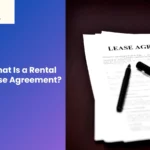Tenant screening is essential for landlords to select responsible tenants who pay rent on time and maintain the property. Asking targeted questions about income, credit history, and rental background allows landlords to assess financial stability and reliability. For example, knowing if a tenant has previously broken a lease or faced eviction can help predict potential risks and prevent future issues.
The questions asked during tenant screening also reveal important details about a tenant’s lifestyle and compatibility with property rules. Asking about pets, smoking, and the number of residents helps ensure tenants follow property rules and avoid conflicts with neighbors. By asking these questions, landlords can make informed decisions, protect their investment, and foster positive, long-term rental relationships, ultimately reducing turnover and maintaining a well-managed property.
Tenant Background & History
Questions about a tenant’s background and rental history, including past leases, evictions, criminal records, or bankruptcies, help landlords assess reliability, responsibility, and potential risk. By uncovering these details, landlords can identify tenants who are more likely to pay rent on time, respect the property, and maintain a stable, long-term tenancy.
1. Why are you moving from your current home?
Asking why a tenant is moving helps landlords understand their motivations and potential red flags. If the move is due to conflicts with a previous landlord or financial struggles, it may indicate risks in reliability or property care. Understanding the reason for relocation provides insight into the tenant’s behavior and helps ensure a smoother rental relationship.
2. How long have you lived in your current residence?
The length of stay in a previous home can indicate tenant stability. Longer tenancies often reflect reliability and responsibility, while frequent moves may suggest potential issues with prior landlords or property management. This question helps landlords gauge how settled a tenant is likely to be.
3. Have you ever broken a lease agreement?
Breaking a lease signals potential commitment issues. Asking about lease violations allows landlords to understand the circumstances, whether financial hardship or conflicts, and assess whether the tenant is likely to honor future agreements.
4. Have you ever been evicted?
Evictions are a serious indicator of potential risks. By asking about past evictions, landlords can determine if the tenant had payment issues or behavioral problems and evaluate whether these factors might impact future tenancy.
5. Have you ever filed for bankruptcy?
Understanding financial history, including bankruptcies, helps landlords assess a tenant’s ability to meet rent obligations. Follow-up questions about recovery and current financial status provide insight into reliability and risk.
6. Have you had any criminal convictions? If so, can you explain?
Criminal history can indicate potential risks to property and other tenants. Asking for details allows landlords to consider context, severity, and timing, ensuring informed decisions while balancing safety and fairness.
7. What is your current living situation? Are you living with roommates or alone?
This question reveals the tenant’s lifestyle and independence. Knowing whether a tenant lives alone or with others helps assess financial stability, responsibility, and compatibility with the property’s rules.
8. Have you ever had a late rent payment or bounced a check?
Late payments or bounced checks indicate financial instability. Asking about these instances helps landlords gauge reliability and take note of potential risks while understanding the reasons behind any past issues.
9. Have you ever been involved in a lawsuit regarding a rental property?
Past rental-related lawsuits can signal disputes with landlords or neighbors. Understanding the nature and outcome of such cases helps landlords anticipate potential challenges and assess tenant behavior.
Income & Financial Stability
Enquiring about a tenant’s financial stability allows landlords to ensure they can reliably pay rent. Questions related to income, credit score, and proof of earnings help property owners determine whether a renter has the financial capability to meet monthly obligations. Understanding these factors reduces the risk of late payments and potential disputes.
10. What is your monthly income?
Knowing a tenant’s monthly income helps landlords verify that rent is affordable relative to their earnings. This question provides insight into financial capacity and the likelihood of timely payments.
11. Can you provide proof of income or pay stubs?
Requesting documentation such as pay stubs, bank statements, or tax returns ensures that the tenant’s reported income is accurate and reliable. This step strengthens confidence in their ability to meet rent obligations.
12. What is your credit score?
A tenant’s credit score reflects their financial responsibility and history of managing debt. Higher scores generally indicate reliability, while lower scores may highlight potential risk factors for missed payments.
13. Can you provide a copy of your credit report?
A detailed credit report allows landlords to assess financial behavior beyond the score alone, identifying late payments, collections, or outstanding debt that may affect rent reliability.
14. What’s your current landlord’s contact information for a reference?
Obtaining a reference from the current landlord helps verify the tenant’s payment history, reliability, and overall suitability, providing an added layer of financial and behavioral assurance.
15. Do you expect any major changes in your financial situation in the near future?
Understanding potential changes in income or employment helps landlords anticipate financial risks, ensuring renters are capable of meeting rental obligations throughout the lease term.
Tenant Behavior & Lifestyle
The way tenants live and manage their daily routines directly influences both the property’s condition and the rental experience. Asking about habits such as occupancy, pet ownership, or smoking helps landlords confirm that tenants will respect property rules, maintain the unit, and get along with neighbors, reducing the risk of disputes and damage.
16. How many people will be living in the unit?
Knowing the number of occupants helps landlords assess potential overcrowding, plan for wear and tear, and ensure compliance with occupancy limits.
17. Do you have any pets? If so, how many and what kind?
Pets can affect property conditions and compliance with rules. Asking about pets allows landlords to enforce pet policies and prepare for any special considerations or deposits.
18. Are you a smoker, or is anyone in your household a smoker?
Smoking can cause property damage and health concerns for other tenants. Understanding a tenant’s smoking habits helps landlords implement policies and maintain a safe environment.
19. How many vehicles will you be parking on the property?
Vehicle information helps landlords manage parking spaces efficiently and prevent conflicts over limited resources.
20. Would you like us to accommodate any special requirements, for example, accessibility features?
Asking about special needs ensures the property can accommodate accessibility requirements and creates an inclusive environment for tenants.
21. Are you planning to have guests or visitors over regularly?
Knowing about guest frequency helps landlords anticipate potential noise, parking, or security concerns, maintaining harmony within the property.
Rental Terms & Lease Agreement
Clarifying rental terms and lease agreements ensures both landlords and tenants understand their rights, responsibilities, and expectations. Discussing lease duration, payment methods, and willingness to comply with terms helps prevent misunderstandings and sets a foundation for a smooth tenancy.
22. What date would you like to move in?
Knowing the move-in date allows landlords to plan property availability, schedule necessary maintenance, and coordinate turnover efficiently.
23. Are you willing to sign a 1-year lease agreement?
A 1-year lease demonstrates tenant commitment and provides stability, reducing turnover and ensuring predictable rental income for the landlord.
24. Will you be able to pay the application fee and security deposit?
Confirming the tenant can cover upfront costs verifies financial readiness and protects the landlord’s investment from the start.
25. Are you willing to agree to a background and credit check?
Consent to background and credit checks allows landlords to verify financial reliability, criminal history, and overall tenant suitability for the property.
26. Do you have renters’ insurance, or would you be willing to obtain it?
Renters’ insurance safeguards both the renter and property owner against potential damages or liabilities, providing additional security for the property.
27. What is your preferred method of payment for rent?
Understanding the tenant’s preferred payment method helps streamline rent collection, avoid delays, and reduce administrative issues.
Landlord References & Previous Rental History
Checking a tenant’s rental history and contacting former landlords reveals patterns in rent payments, property care, and rule compliance. Verified references confirm a tenant’s reliability, highlight any past disputes or evictions, and give landlords confidence in selecting tenants who will respect agreements and property standards.
28. Can I contact your current employer and previous landlords for references?
Permission to contact employers and previous landlords ensures that the information provided is accurate and allows landlords to verify income, reliability, and past behavior.
29. Do you have any previous rental history or references from past landlords?
Detailed past rental history demonstrates a tenant’s experience, responsibility, and ability to maintain a positive relationship with landlords, giving added confidence in their suitability.
30. What’s your current landlord’s contact information for a reference?
Obtaining contact details allows landlords to directly confirm payment records, behavior, and reliability, ensuring an informed decision about the prospective tenant.
Legal Compliance & Property Rules
Clear communication about noise limits, parking rules, waste disposal, and adherence to local housing laws helps landlords avoid disputes and penalties. Confirming a tenant’s willingness to respect these standards safeguards property value, ensures community safety, and supports a cooperative living environment.
31. Are you willing to comply with property rules and HOA guidelines?
Tenant agreement to property rules and HOA guidelines ensures respect for community standards, such as noise restrictions, parking, and pet policies, reducing potential conflicts.
32. What is your plan if you need to move out before the lease term ends?
Understanding a tenant’s plan for early lease termination clarifies responsibilities and ensures they are aware of penalties, helping prevent disputes and unexpected vacancies.
Tenant Duration & Stability
Knowing whether a tenant plans to rent short-term or long-term helps landlords anticipate turnover, manage lease renewals, and maintain steady cash flow. Longer commitments provide stability, reduce advertising and screening expenses, and lessen the risk of frequent vacancies or disruptive tenant changes.
33. How long do you plan to stay at this property?
Knowing the tenant’s expected duration allows landlords to gauge commitment and plan for future occupancy, helping ensure a stable and reliable rental arrangement.
34. What are you looking for in a rental property?
Understanding the tenant’s priorities, such as location, amenities, or lifestyle preferences, ensures the property aligns with their needs, fostering satisfaction and long-term tenancy.
Security & Liability
Clarifying responsibilities for locks, alarms, visitor access, and insurance helps avoid confusion between tenants and landlords. Clear agreements reduce risks of break-ins, accidents, or property damage while promoting accountability, safety, and proper handling of emergencies within the rental property.
35. Will you be able to pay the application fee and security deposit?
Confirming the tenant can cover upfront fees and security deposits demonstrates financial readiness and helps protect the property against potential damages or unpaid rent.
36. Are you willing to sign a 1-year lease agreement?
A signed lease outlines tenant and landlord responsibilities, ensures commitment, and provides legal protection in case of disputes, securing both parties’ interests.
Questions Landlords Should Avoid Under Fair Housing Laws
Under federal and California Fair Housing Laws, landlords must avoid asking questions that could lead to discrimination based on race, color, religion, sex, familial status, national origin, disability, or other protected characteristics. Asking such questions can result in legal liability, fines, or lawsuits. Landlords should never ask prospective tenants about:
- Their race, ethnicity, or national origin
- Religious beliefs or practices
- Gender, sexual orientation, or marital status
- Whether they have children or plan to have children
- Disability status or medical conditions
- Age, unless legally relevant for senior housing
- Arrest records (as opposed to convictions, where allowed by law)
Below are 19 rental application questions landlords and property owners should refrain from asking the prospective tenants:
- What is your race or ethnicity?
- Where were you born?
- What language do you speak at home?
- What is your religion?
- Do you attend church regularly?
- What religious holidays do you observe?
- Are you married?
- Are you planning to get married soon?
- What is your sexual orientation?
- Do you have children?
- How many children do you have?
- What are your childcare arrangements?
- Do you have any disabilities?
- Do you have any medical conditions?
- How often do you visit the doctor?
- How old are you?
- What is your birth date?
- When do you plan to retire?
- Have you ever been arrested?
How Can a Property Management Company Help with Tenant Screening in California?
A property management company helps landlords select reliable tenants by conducting thorough background checks, verifying income and credit history, and ensuring compliance with California rental laws. This reduces the risk of late payments, property damage, and legal disputes.
Local property management companies in California bring expertise in state-specific regulations, tenant rights, and market practices, streamlining the tenant selection process and ensuring all legal requirements are met. By outsourcing screening to a property management company, landlords save time, minimize financial and legal risks, and maintain a smooth, compliant rental process that protects both the property and the tenant.







